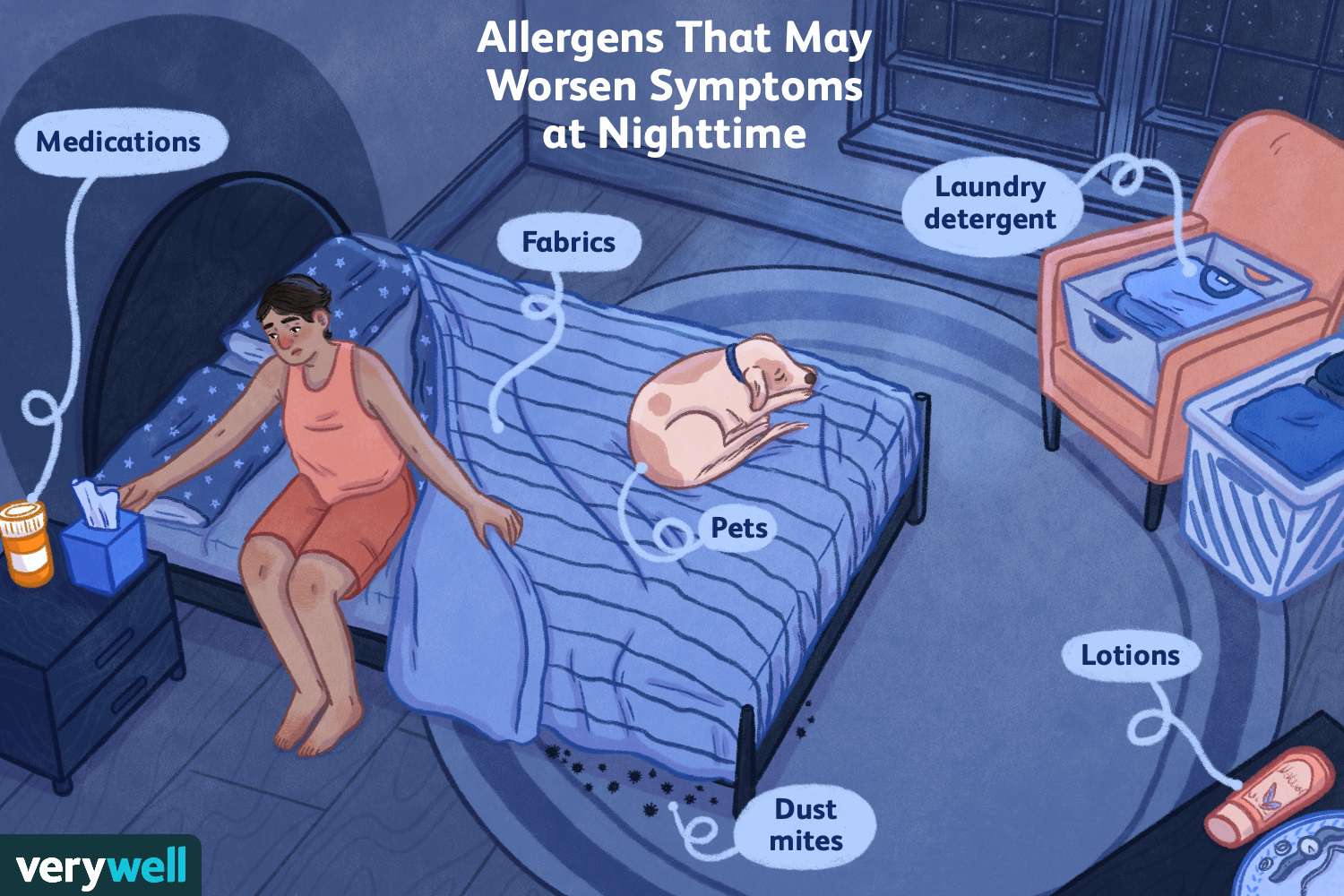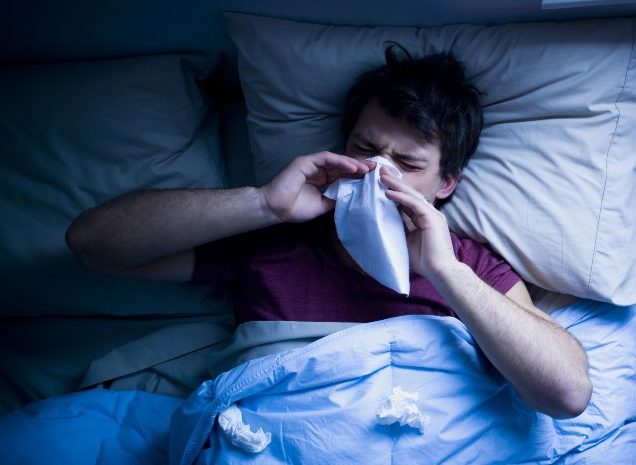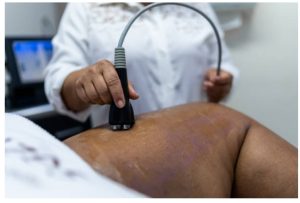
Introduction:
For many allergy sufferers, it is not uncommon to experience worsening symptoms at night. Allergies can cause a range of symptoms, from itchy eyes and a runny nose to skin rashes and difficulty breathing. While the cause of allergies is typically an overreaction of the immune system to harmless substances, such as pollen or dust mites, it can be puzzling why these symptoms seem to get worse at night. In this article, we will explore some of the reasons why allergies can worsen at night and what you can do to alleviate symptoms.
Why Do Allergies Get Worse at Night?

There are several reasons why allergies can become more severe at night. Here are some of the most common factors that contribute to this phenomenon:
-
Exposure to Allergens:
One reason why allergies may be worse at night is that people are typically exposed to more allergens in their bedrooms while they sleep. Dust mites, pet dander, and pollen can all collect in bedding, carpets, and furniture, and these allergens can become airborne when people move around or disturb the surfaces. Therefore, when you spend a significant amount of time in your bedroom, such as when you are sleeping, it is more likely that you will come into contact with these allergens, leading to worsened symptoms.
-
Nasal Congestion:
Nasal congestion is a common allergy symptom that can make it difficult to breathe through the nose. When you lie down at night, gravity can cause mucus to accumulate in your nasal passages, making congestion worse. This can lead to snoring, disrupted sleep, and waking up feeling congested and groggy.
-
Changes in Hormones:
Another factor that can contribute to worsening allergies at night is changes in hormone levels. In particular, the hormone cortisol, which plays a role in regulating the immune system, is typically lowest at night. This can lead to an increase in inflammation and worsened allergy symptoms.
How to stop allergies at night:
This line is a question, asking for advice on how to prevent or alleviate allergies during the nighttime hours.
Why do my allergies get worse at night and morning:
This line is also a question, asking for an explanation of why allergy symptoms can worsen both at night and in the morning.
Indoor allergies worse at night:
This line suggests that allergies caused by indoor allergens, such as dust mites or pet dander, may be more severe at night.
Allergies at night only:
This line suggests that the person experiencing allergies only has symptoms at night, rather than during the day.
Why are pollen allergies worse at night:
This line is a question, asking for an explanation of why allergies caused by pollen may be more severe at night.
Allergies in bedroom at night:
This line suggests that the person experiencing allergies is specifically having symptoms while in ther bedroom at night.
Why do my allergies get worse at night reddit:
This line is a question that someone posted on the website Reddit, asking for an explanation of why their allergies become more severe at night.
Why is my allergy cough worse at night:
This line is a question, asking for an explanation of why someone’s cough caused by allergies is more severe at night.
Can indoor air quality impact nighttime allergies?
A: Yes, poor indoor air quality can worsen nighttime allergies. This is because allergens, such as dust and pet dander, can accumulate in the air in your home, leading to more exposure and more severe symptoms.
How can I improve my indoor air quality to alleviate nighttime allergies?
There are several steps you can take to improve indoor air quality and alleviate nighttime allergies. These include using an air purifier, vacuuming regularly with a HEPA filter, washing bedding in hot water, and keeping pets out of the bedroom.
Are there any over-the-counter medications that can help with nighttime allergies?
Yes, there are several over-the-counter medications that can help alleviate nighttime allergy symptoms, including antihistamines, decongestants, and nasal sprays. However, it is important to speak with your healthcare provider before starting any new medications.
What helps with allergies at night?
There are several things that can help alleviate allergies at night, such as:
- Using an air purifier in the bedroom to reduce airborne allergens
- Keeping the bedroom clean and free of dust and pet dander
- Washing bedding frequently in hot water to kill dust mites
- Using hypoallergenic bedding and pillowcases
- Taking antihistamines or decongestants, as recommended by a healthcare provider
What position is best to sleep with allergies?
Sleeping in an upright position can help alleviate allergies, as it can reduce congestion and post-nasal drip. This can be achieved by using extra pillows to prop up the head and shoulders, or by sleeping in a recliner. Additionally, sleeping on the back can help prevent allergens from entering the nasal passages, whereas sleeping on the stomach can exacerbate symptoms by pressing the face into the pillow.
Conclusion:
Allergies can be a frustrating and uncomfortable experience, especially when symptoms seem to worsen at night. However, there are several reasons why allergies may become more severe during nighttime hours, including exposure to allergens, nasal congestion, and changes in hormone levels. To alleviate nighttime allergies, it is important to take steps to reduce exposure to allergens, improve indoor air quality, and speak with a healthcare provider about appropriate treatments. With the right management strategies in place, it is possible to get a good night’s sleep, even for those who suffer from allergies.




